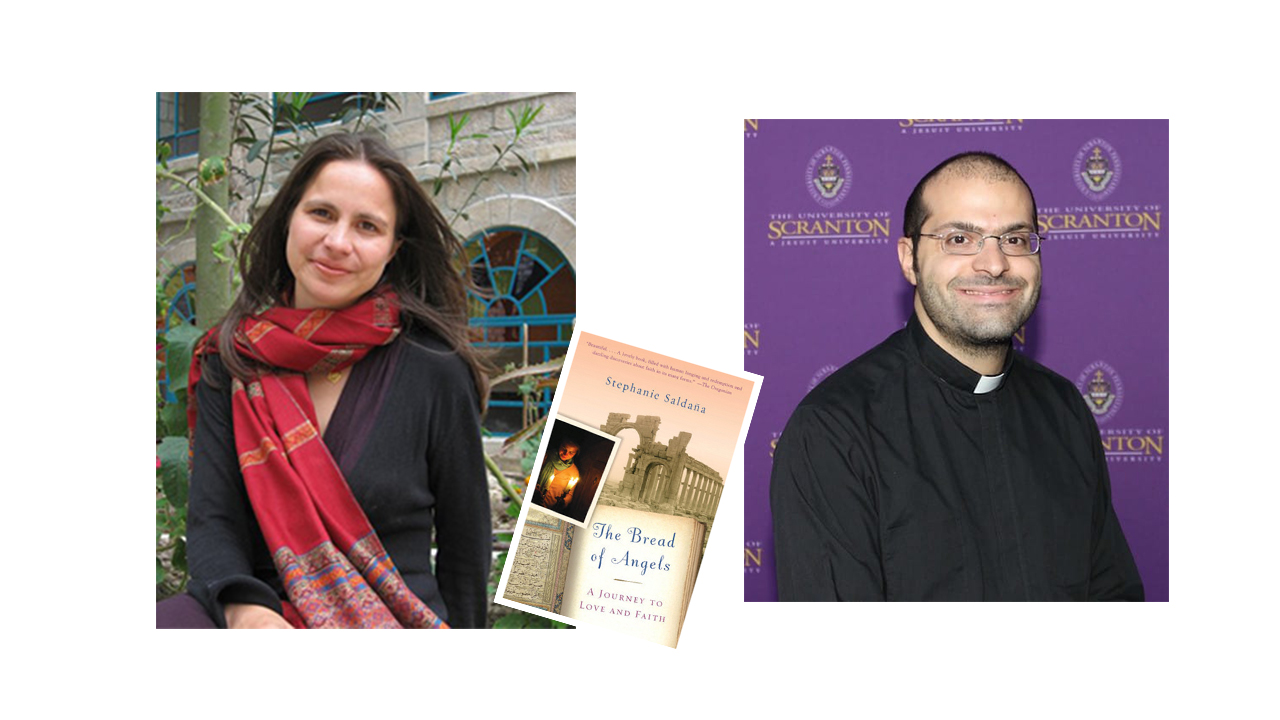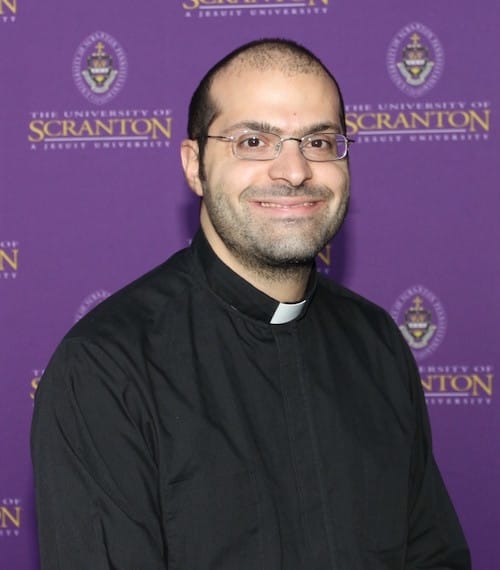Professor Interviews Royal Reads Author Stephanie Saldaña

Stephanie Saldaña will be the Ignatian Values in Action Lecture keynote speaker on Sept. 19. Here, Michael Azar, Ph.D., theology professor, speaks with her about her work.
Azar: Why did you choose to write The Bread of Angels? What is it about your personal story that you most wanted to share with others?
Saldaña: I’m pretty shy, and so I can only have the courage to write a book by pretending that no one is ever going to read it. In many ways, I wrote The Bread of Angels in order to make sense for myself of what I lived in Syria. It was a remarkable year. I was an American on a Fulbright in Syria during the American invasion of neighboring Iraq, and tensions between our countries were high. The American ambassador was even removed during my time there. At the same time, I experienced this extraordinary hospitality from the Syrians themselves, who loved me and welcomed me. The time I spent as a Christian studying Islam with a female sheikh and teaching in a Quranic school for girls would have been remarkable under any circumstances.
And yet despite the extraordinary circumstances of the book, I think that it is really a very universal story, a story about my search for faith, about finding God and falling in love. I hope that it’s a story anyone can relate to.
Azar: Most would probably say that a year in Syria and falling in love with a novice monk in the desert are fairly unique events, but what do you hope college students at a place like The University of Scranton might learn from these events in your life?
Saldaña: I was so thrilled to learn that students at The University of Scranton would be reading The Bread of Angels, because they are really my ideal readers. The book is a coming-of-age story about accepting who we are, about learning to heal from the wounds of our pasts, and about having the courage to say “yes” to what we feel called to in life. It is a book about the risk of falling in love, with God and with another person. It is also a book infused with Jesuit spirituality. The four sections of the book correspond to the four weeks of the Spiritual Exercises of St. Ignatius of Loyola, and the heart of the book is my experience of making the Spiritual Exercises in the desert. The book is really about how all of life changes when we begin to see God in all things, and about the transformative power of relationships.
Azar: Has the way that you see and understand that year in Syria changed at all since you wrote the book? What lessons have you learned since that perhaps have caused you to see that year differently?
Saldaña:I had no idea when I was writing The Bread of Angels that the world I was describing was on the verge of disappearing. The book was published in 2010, and the Syrian civil war started a year later. It was devastating—for me personally, but above all for all of the characters in the book. I’ve heard stories of Syrians reading the book and crying through it, because so much of what I describe was destroyed in the war—especially the personal relationships. One major character in the book was kidnapped and remains missing, others were forced to flee the country.
Now I understand, in a way that I could not then, that to be a writer in the Middle East is to be a chronicler of all that is vanishing. So much is disappearing so quickly: languages, religious communities, archeological sites, stories, relationships between people. W.S. Merwin wrote that “What is remembered is saved,” and now I have a renewed sense of the obligation not only to record, but to remember. I’ve also discovered that remembering is an act of hope.
Azar: Can you tell us a little about your work since you published this book?
Saldaña: The Bread of Angels was published in 2010, and so a lot has happened since then! Today I live in Jerusalem with my husband and three children at the Tantur Ecumenical Institute, where I’ve had the joy of meeting students from The University of Scranton who come to study abroad. I also wrote a second book, A Country Between, about raising children on the tense border between East and West Jerusalem, and about the beauty to be found even in conflict. I’ve spent the last several years working on a storytelling project called Mosaic Stories which chronicles the disappearing intangible heritage of the Middle East, particularly among the refugees of Iraq and Syria.
Azar: What are you currently working on?
Saldaña: I’m currently working on a book telling the stories of seven refugees who fled from seven different cities in Iraq and Syria. The people I profile are incredible: an Aramaic speaking Christian from Iraq who sews the story of her city into a dress, a Yazidi from Mt. Sinjar who helps to rescue his family, Kurdish musicians from northeastern Syria who are keeping their music alive in exile. The stories are tragic and yet hopeful, and each person I write about has taught me something that has proven to be transformative for my own life.
Come to the Ignatian Values in Action lecture on Sept. 19 at 7:30. More info here. REQUIRED for all new students, including incoming freshmen, transfer students, post-baccalaureate, and non-traditional students.







